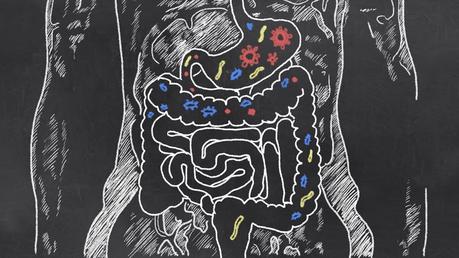
A new randomized study out of China is trying to tell us fat is bad for our microbiome, and the headlines came flowing.
U.S. News: High fat diets do no favors for your gut bacteria
NZ Herald: High fat diets hurt the helpful bugs within us
Eurek Alert: High fat diet linked to unfavorable changes in gut bacteria and inflammatory triggers
Should we believe it?
No, not really.
The study in question took 217 Chinese adults and randomized them into low-fat (20% of calories), moderate-fat (30%) and high-fat (40%) cohorts. Right away, red flags should be popping up in your brain. If the high-fat group is only eating 40% of their calories from fat, where are the rest of the calories coming from? 48% of the cohort's calories came from carbohydrates. That hardly fits the criteria for a true "high-fat" diet.
Haven't we already learned that combined high-ish fat and high-carb diets tend to have the worst health effects? Adding fat to a system overwhelmed with high insulin from carbs and sugar is not a good idea. See 50 years of Standard American Diet (SAD) history.
Red flag #2 should have you asking, "Where is the fat coming from?" The majority of the fat intake was from soybean oil. It's foolish to assume that soybean oil, an industrially produced omega-6 seed oil, has the same metabolic effects as real-food-based fats from eggs, cheese, meats and avocados.
Red flag #3 (as if we need any more) should have you asking, "Do we really know what the alterations in our microbiome mean to our long-term health?" I understand that all studies can't be 30-year studies measuring real outcomes such as death, longevity and heart attacks, so we need to pick surrogate markers to follow to give us an idea about long-term health. The key, however, is picking surrogate markers that we confidently know correspond to meaningful clinical outcomes. While the microbiome research shows promise, it is still a long way away from helping us make clinical decisions with long-term confidence.
If we want to know the effects of a low-carb, high-fat diet on our health, first we need to actually test a real low-carb, high-fat diet, based on real food not ultra-processed oils. Next we need to measure outcomes that matter. It may not be easy, but if we want helpful answers, that is the path to truth.
Thanks for reading,
Bret Scher, MD FACC


